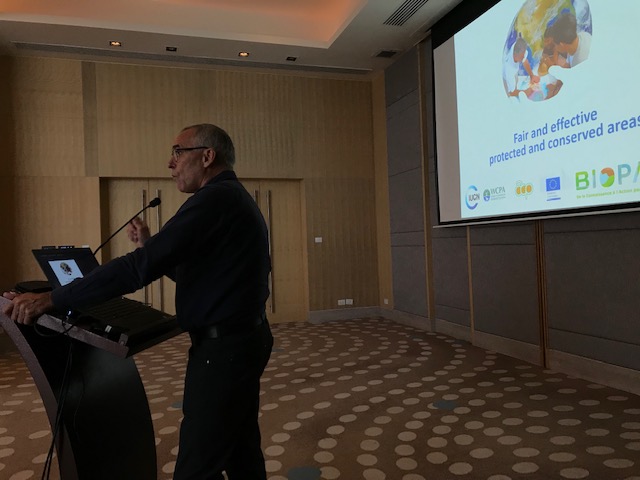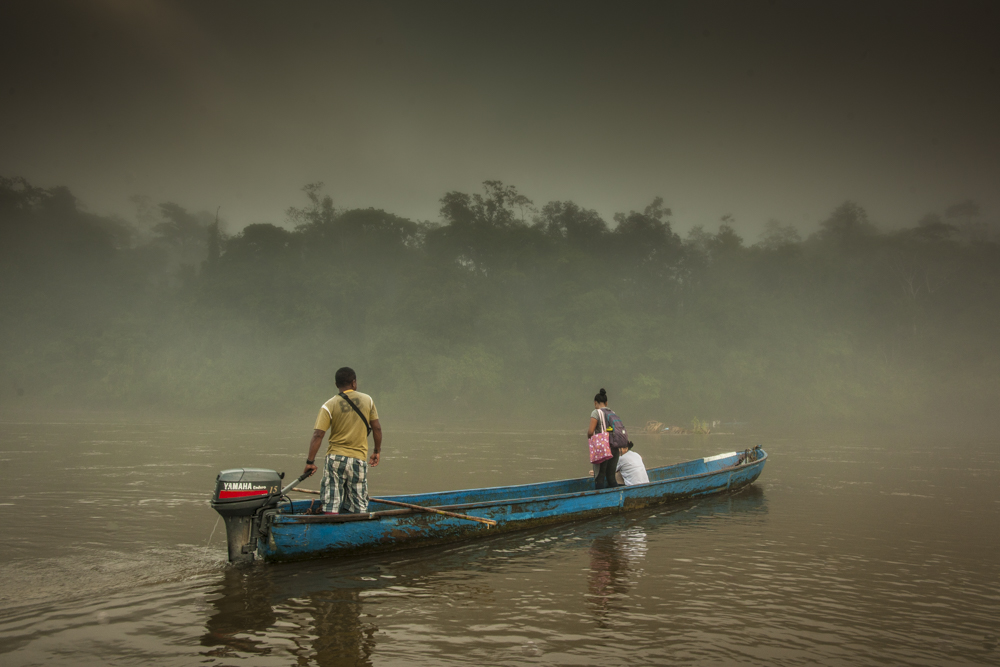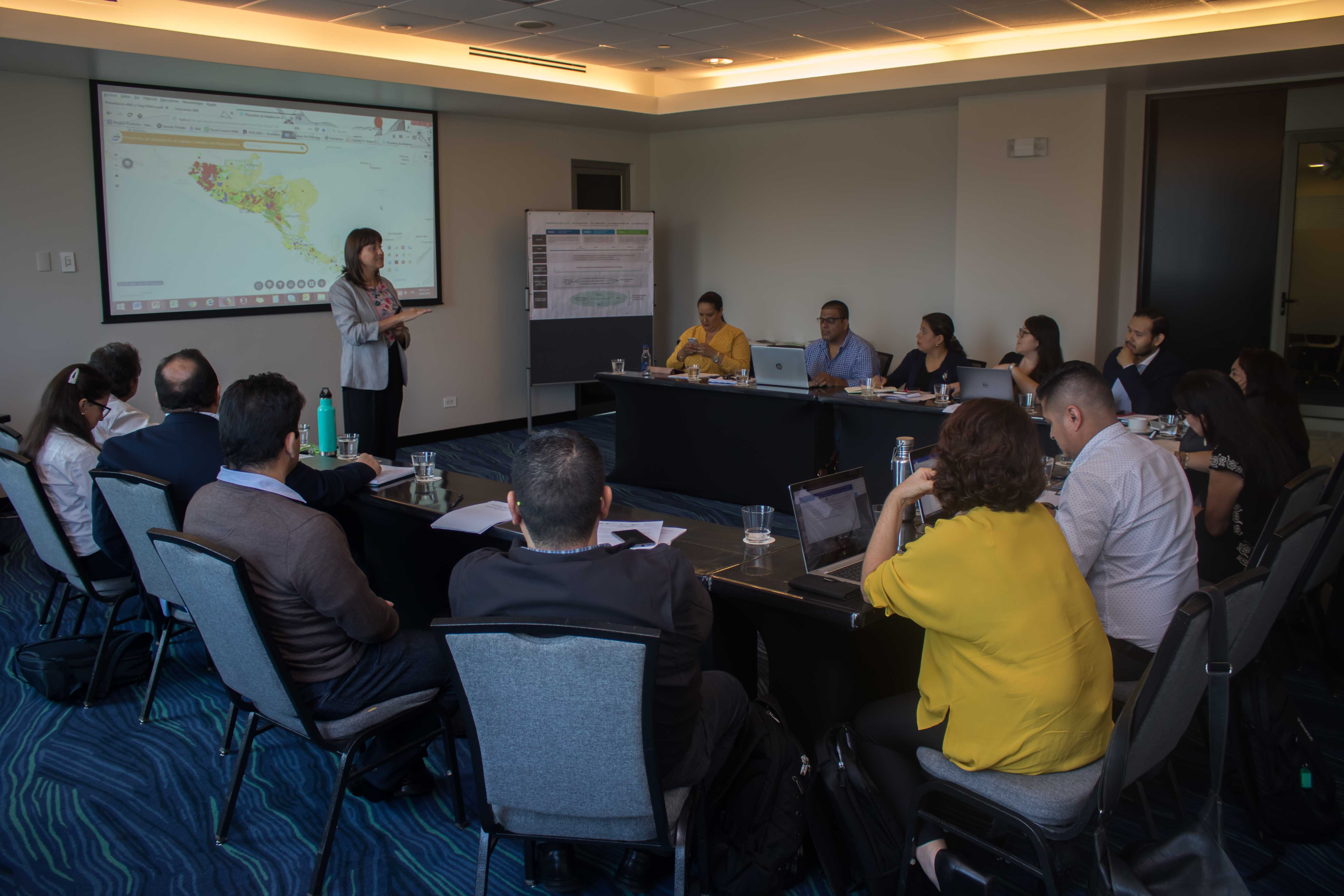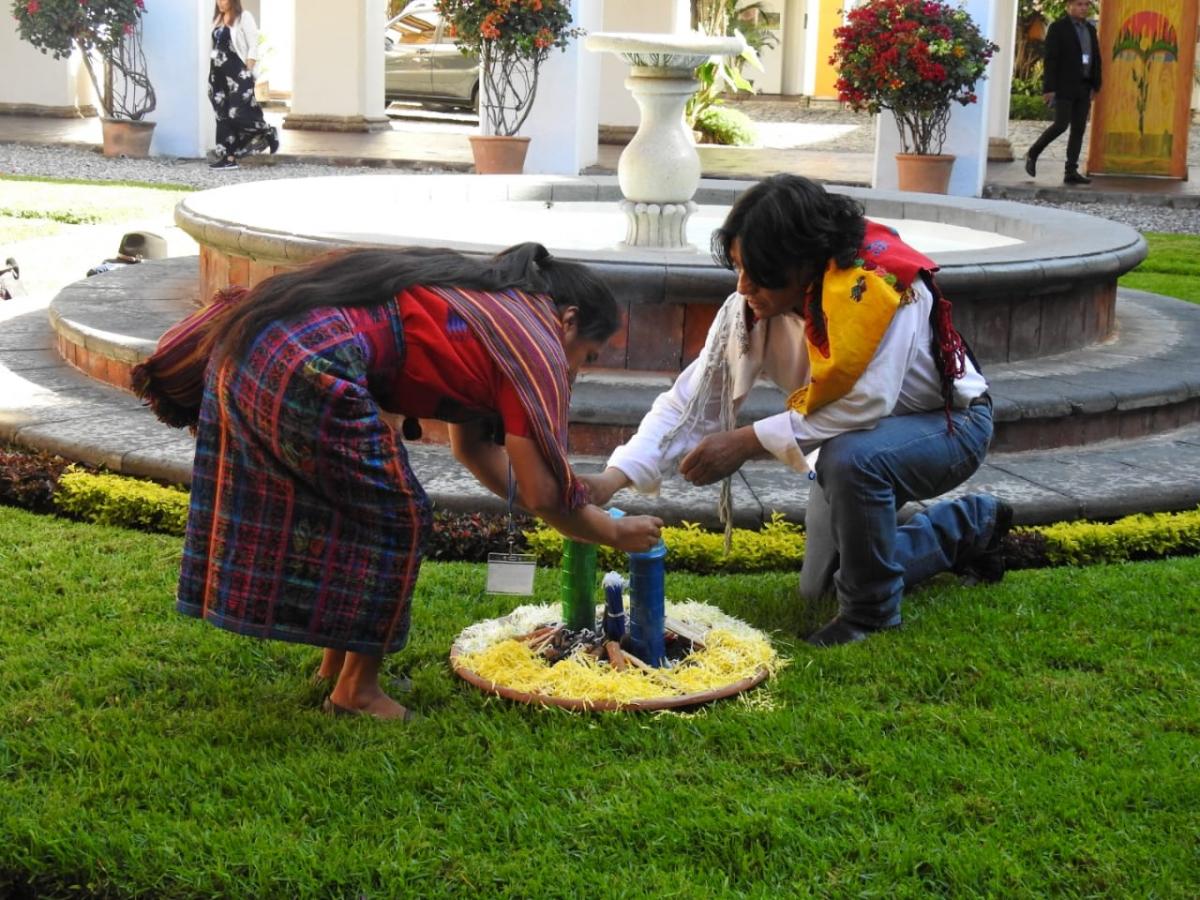APAP explores opportunities to contribute to global agendas
The 5th Asia Protected Areas Partnership (APAP) Steering Committee meeting, held in Bangkok on 24 and 25 July 2019, reaffirmed that the Partnership is continuing to make significant headway, not just at the regional level, but in the global arena as well.
The Steering Committee meeting was the largest in APAP’s history, with participants from 16 Asian countries in attendance, as well as IUCN Regional Councillors and representatives from the IUCN World Commission on Protected Areas (WCPA) and the IUCN Global Protected Areas Programme, amongst others.
This year’s meeting highlighted the ways in which APAP could contribute to global agendas and frameworks, including the Post-2020 Biodiversity Framework. ''APAP Member countries and IUCN should use the opportunity of the 2nd Asia Parks Congress to develop a regional action plan for achieving the protected and conserved area targets that will be contained in the post-2020 Biodiversity Framework to be adopted at CBD COP 15 in Kunming,’’ said Aban Marker Kabraji, IUCN Asia Regional Director.
The meeting also highlighted the ways in which APAP could contribute to the IUCN Green List of Protected and Conserved Areas - the first global standard to recognise best practices for effective and equitable area-based conservation. Trevor Sandwith, Director, IUCN Global Protected Areas Programme, introduced the new IUCN Green List project, a global initiative that will have a particular emphasis on Asia. The project will be implemented with the collaboration of APAP and with funding support from the Ministry of Environment of the Republic of Korea.
In another significant step, the APAP Steering Committee decided to create a Green List Working Group under the auspices of the Partnership. This will be APAP’s very first thematic working group and marks an important stage in the Partnership’s evolution and growth. The group will meet once or twice a year and provide a platform for Green List practitioners to share experiences.
The meeting also touched upon “Other Effective Area‐based Conservation Measures (OECMs)”. In 2010, the 10th Conference of the Parties to the Convention on Biological Diversity (COP 10/CBD) adopted the Aichi Biodiversity Targets as part of the Strategic Plan for Biodiversity 2011-2020. Target 11 calls for “at least 17 per cent of terrestrial and inland water areas and 10 per cent of coastal and marine areas” to be conserved by way of “well-connected systems of protected areas and other effective area-based conservation measures”. OECMs are distinct from protected areas in that they deliver effective in-situ biodiversity conservation even though that is not their primary management objective.
''The land and water beyond protected areas can often support a tremendous amount of biodiversity as well as many important ecosystem functions and services'', said Harry Jonas, Co‐chair, IUCN World Commission on Protected Areas (WCPA) Task Force on OECMs. ''Recognising, reporting and supporting OECMs provides a global opportunity to increase connectivity and improve ecological representativeness in a way that is inclusive of a range of diverse actors who have not traditionally been associated with area-based conservation, such as indigenous peoples, local communities and the private sector'', he added.
Dr Kathy MacKinnon, Chair, IUCN WCPA, emphasised that OECMs would need to be assessed on a case-by-case basis to ensure long-term results. Dr MacKinnon also noted that WCPA is close to publishing a Technical Report on recognising and reporting OECMs.
Identifying OECMs and reporting them to the World Database on Protected Areas (WDPA) by 2020 will be a challenging task for most countries. The Asia Protected Areas Partnership will help APAP members to tackle this challenge by building their capacity and enhancing awareness of OECMs through a technical workshop planned for the first half of 2020.
During the meeting, the continued growth in APAP’s membership was also highlighted. Four new Members had joined the Partnership since the last Steering Committee meeting. Sabah Parks from Malaysia, the Protected Area Management Division of the Department of Forestry from Lao PDR, and the Environmental Protection Agency from the Maldives, had joined APAP as Country Members. The ASEAN Centre for Biodiversity (ACB) had also joined, as the Partnership’s second Associate Member.
The meeting concluded with an invitation to all APAP members to participate in the upcoming 2nd Asia Parks Congress, to be held in 2021 in Sabah, Malaysia.
About the Asia Protected Areas Partnership (APAP)
The Asia Protected Areas Partnership (APAP) has been designed as a key platform to help governments and other stakeholders collaborate for more effective management of protected areas in the region. The partnership was initiated in 2013 at the first-ever Asia Parks Congress held in Japan, and formally launched the following year at the IUCN World Parks Congress in Australia. It is chaired by IUCN, International Union for Conservation of Nature, and co-chaired by an APAP member organisation on a rotational basis, beginning with the Ministry of the Environment, Japan. The Ministry of Environment, Republic of Korea, is the current co-chair.






